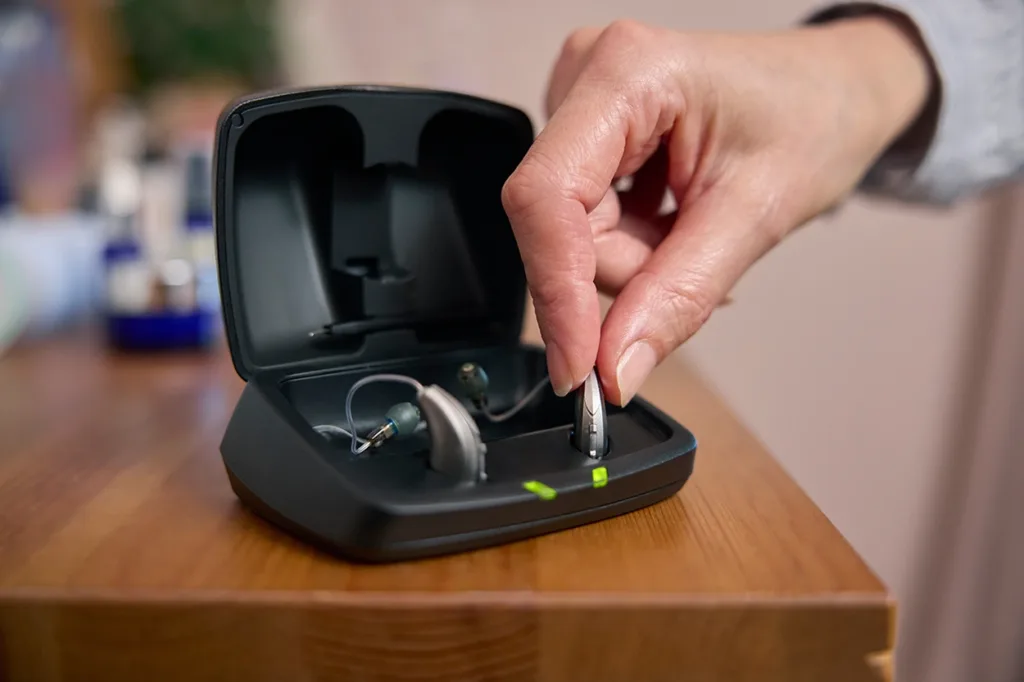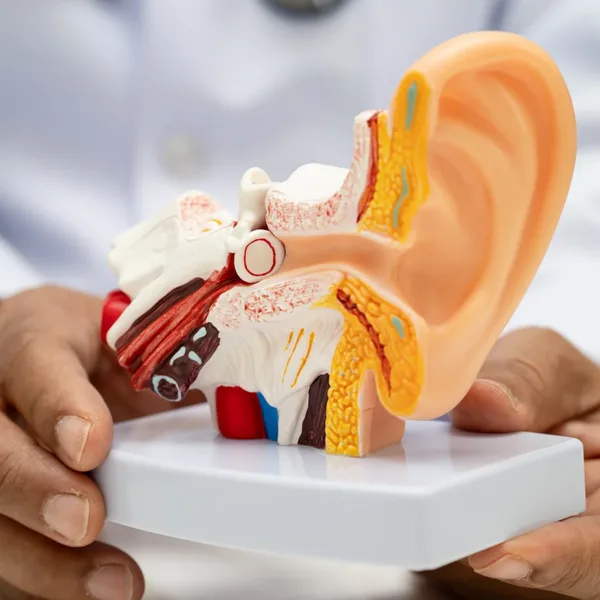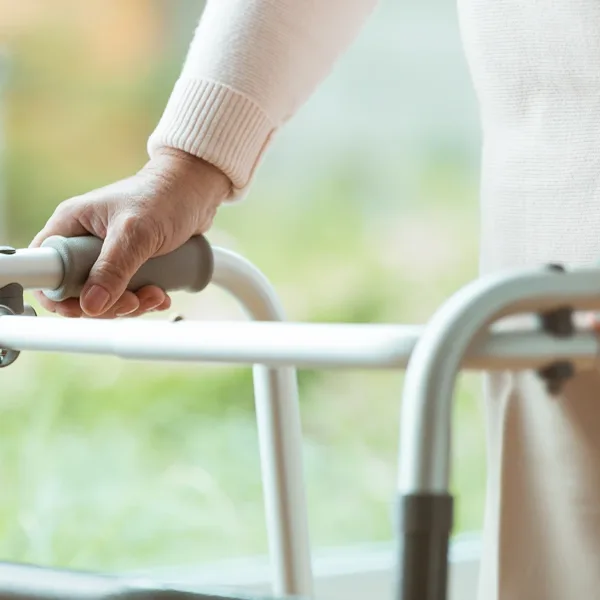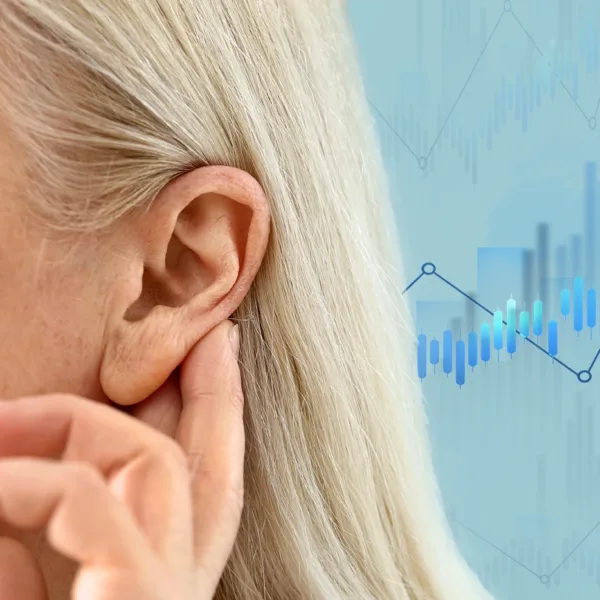
Hearing aids do so much more than just help you hear better. For anyone with hearing loss, they are also important tools for supporting long-term brain health and a higher quality of life overall. But sometimes new users ask: “Do I need to wear my hearing aids all the time?” It’s a fair question. Adjusting to new devices can take time, and you may wonder if it’s necessary when you’re at home or in quiet spaces.
The answer to that is, yes! Wearing your hearing aids consistently plays an important role in how well they work for you, both now and in the long run. In this article, we explain the benefits of wearing hearing aids every day and the situations where it’s okay to take them out.
Benefits of Wearing Hearing Aids Every Day
Hearing aids are designed to be worn all day, every day, and the benefits extend far beyond your ears alone. Daily use helps you stay connected, engaged, and safe, while also supporting your long-term brain health. Below are some of the key advantages of wearing your hearing aids every day:
Improved Communication
One of the most immediate and noticeable benefits of wearing your hearing aids all day is clearer communication. Whether at home, at work, or in a loud social setting, hearing aids make it easier to follow conversations and engage with the people around you.
Many of today’s prescription devices can automatically enhance speech and reduce background noise, making conversations feel effortless again and more natural. The more you use them, the easier it becomes to follow group discussions, respond quickly, and avoid the frustration of constantly asking people to repeat themselves.
Regular use also helps prevent “auditory fatigue,” the mental strain that comes from your brain constantly trying to fill in missing sounds. By supporting better understanding in real time, hearing aids help you engage and connect with the people and experiences that matter most.
Lower the Risk of Falls
Wearing your hearing aids regularly can also play a key role in your physical safety. Research shows that those with hearing loss are almost 2.5 times more likely to experience a fall.1
Fortunately, this research also found that wearing hearing aids consistently can help reduce the risk of falls by up to 50%.1 Some hearing aids even have advanced fall detection features that can also automatically alert emergency contacts, providing an additional layer of safety.
Wearing hearing aids consistently is a critical part of reducing the risk of falls because it trains your brain to process sound and spatial cues more efficiently. This allows your brain to better utilize sound for orientation and balance.
Long-Term Brain Health
Consistent hearing aid use doesn’t just improve your ability to hear—it also supports brain health. Research shows that regularly wearing hearing aids can reduce the rate of cognitive decline in older adults at high risk of dementia by almost 50%.2
When your ears aren’t getting clear sound signals, the parts of the brain responsible for processing sounds can actually shrink.3 Just like our muscles need regular exercise to stay strong, our brain needs consistent auditory stimulation to stay active and healthy.
By wearing your hearing aids consistently, you help keep these essential auditory pathways active, supporting cognitive function and brain health overall.
Better Long-Term Results
Just like our eyes need time to adjust to new glasses, our brain also needs time to adapt to hearing aids. This is called hearing aid acclimatization. This is the adjustment period your brain goes through as it relearns how to process sounds. By wearing your hearing aids every day, you can speed up this process.
However, consistent use not only helps your brain adapt to processing sounds again, but it also ensures you get the most benefit from your devices over time. The more you wear them, the more natural and comfortable they feel, leading to greater confidence, improved social engagement, and a higher overall quality of life.
Daily use is the key to unlocking the full potential of your hearing aids and achieving the best possible outcome for your hearing health.
When to Not Wear Your Hearing Aids

While it’s best to wear your hearing aids throughout the day, there are times when removing them is the safer and more practical choice. Certain environments or activities can put your devices at risk of damage. Knowing when it’s appropriate to take your hearing aids out helps you protect your investment while still getting the full benefits of consistent wear.
Below are some common situations where not wearing your hearing aids is a good idea:
When You’re Sleeping
Hearing aids are not designed to be worn while you are sleeping. Wearing them to bed can cause discomfort and increase the risk of damage. Plus, it can drain the battery unnecessarily.
It’s best to remove your hearing aids before bed and store them in a dehumidifier or drying kit overnight to remove any moisture that may have accumulated throughout the day.
Showering, Swimming, or Other Water Activities
While there are waterproof hearing aids available today, that doesn’t mean they are indestructible. Like any electronic device, prolonged exposure to moisture can affect performance and even shorten its lifespan.
Waterproof features are designed to protect against things like accidents, sweat, rain, and humidity. To keep your hearing aids in optimal working condition, it’s important to keep them out of water as much as possible.
This includes taking them out before showering, bathing, swimming, or participating in other water-related activities.
Using a Hair Dryer or Getting a Haircut
It’s also a good idea to remove your hearing aids before using a hair dryer or sitting down for a haircut. The intense heat and airflow from a dryer can damage the sensitive electronics. Other hair products, like sprays or gels, can expose your devices to moisture and chemicals.
It’s also not worth the risk of having your hearing device knocked out of your ear accidentally by combs or scissors while getting a haircut. Taking them out ahead of time and storing them in their proper case keeps your hearing aids clean and safe from damage.
During Medical Imaging
If you’re scheduled for any kind of medical imaging, such as an MRI, CT scan, or X-ray, you should plan on removing your hearing aids beforehand. These kinds of machines might damage components inside your hearing aid, or the device itself may interfere with the accuracy of the imaging results.
Always let your healthcare provider know you wear hearing aids before the procedure. They’ll advise you when to remove them and provide a safe place to store them during your appointment.
Get the Personalized Hearing Healthcare You Deserve at Audibel
From clearer communication to better brain health, wearing your hearing aids consistently has many life-changing benefits. If you’re struggling to adjust to wearing your device every day or are experiencing any discomfort, don’t hesitate to reach out for professional support.
The hearing healthcare specialists at Audibel want to help you get the most out of your devices. Find an Audibel hearing clinic near you today.
References
- Campos, L., Prochazka, A., Anderson, M., Kaizer, A., Foster, C., & Hullar, T. (n.d.). Consistent hearing aid use is associated with lower fall prevalence and risk in older adults with hearing loss. Journal of the American Geriatrics Society, 71(10), 3163–3171. https://doi.org/10.1111/jgs.18461
- Hearing aids slow cognitive decline in people at high risk. (2025b, June 3). National Institutes of Health (NIH). https://www.nih.gov/news-events/nih-research-matters/hearing-aids-slow-cognitive-decline-people-high-risk
- Shim, Y. J., Jung, W. H., Billig, A. J., Sedley, W., & Song, J. (2023). Hippocampal atrophy is associated with hearing loss in cognitively normal adults. Frontiers in Neuroscience, 17. https://doi.org/10.3389/fnins.2023.1276883







Have a question or Comment?